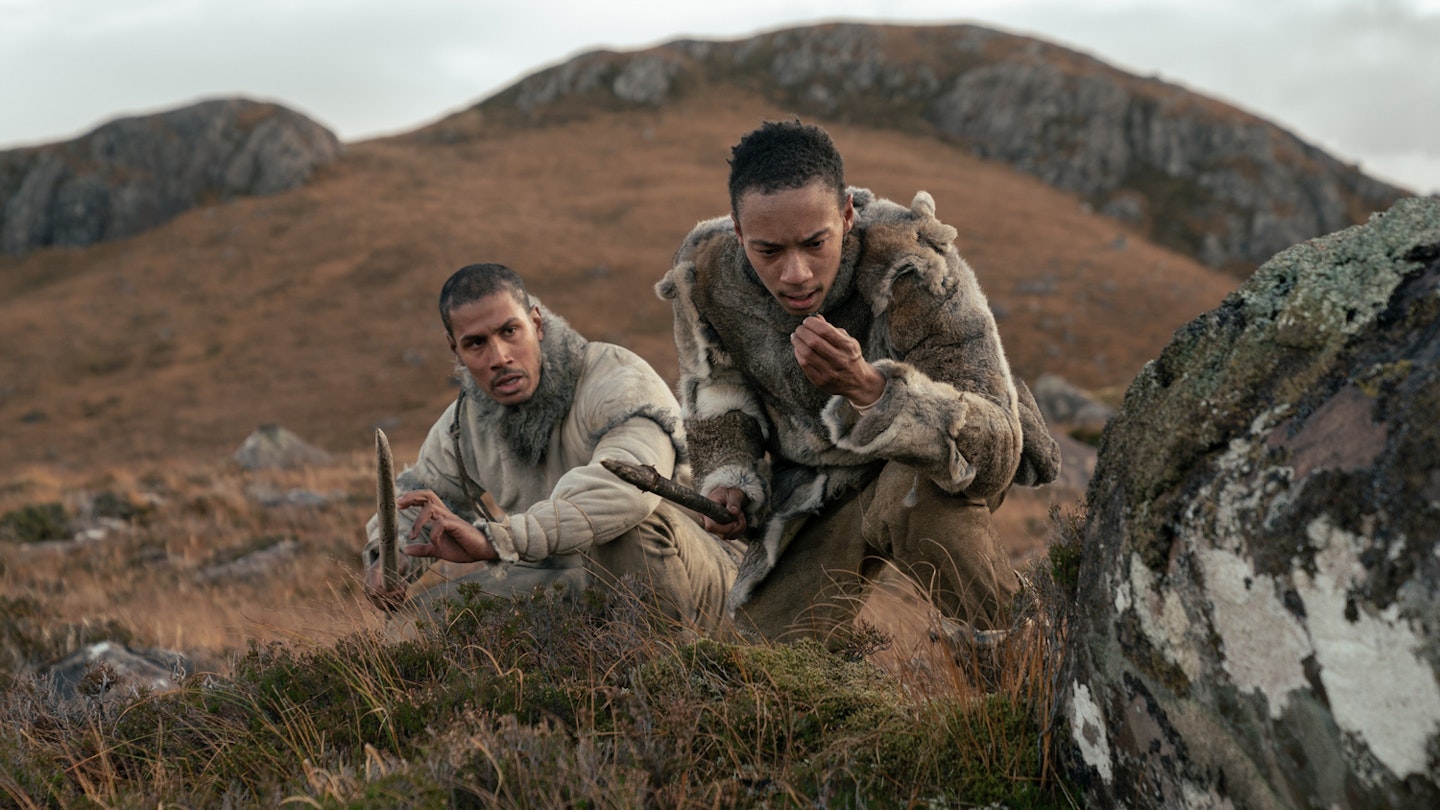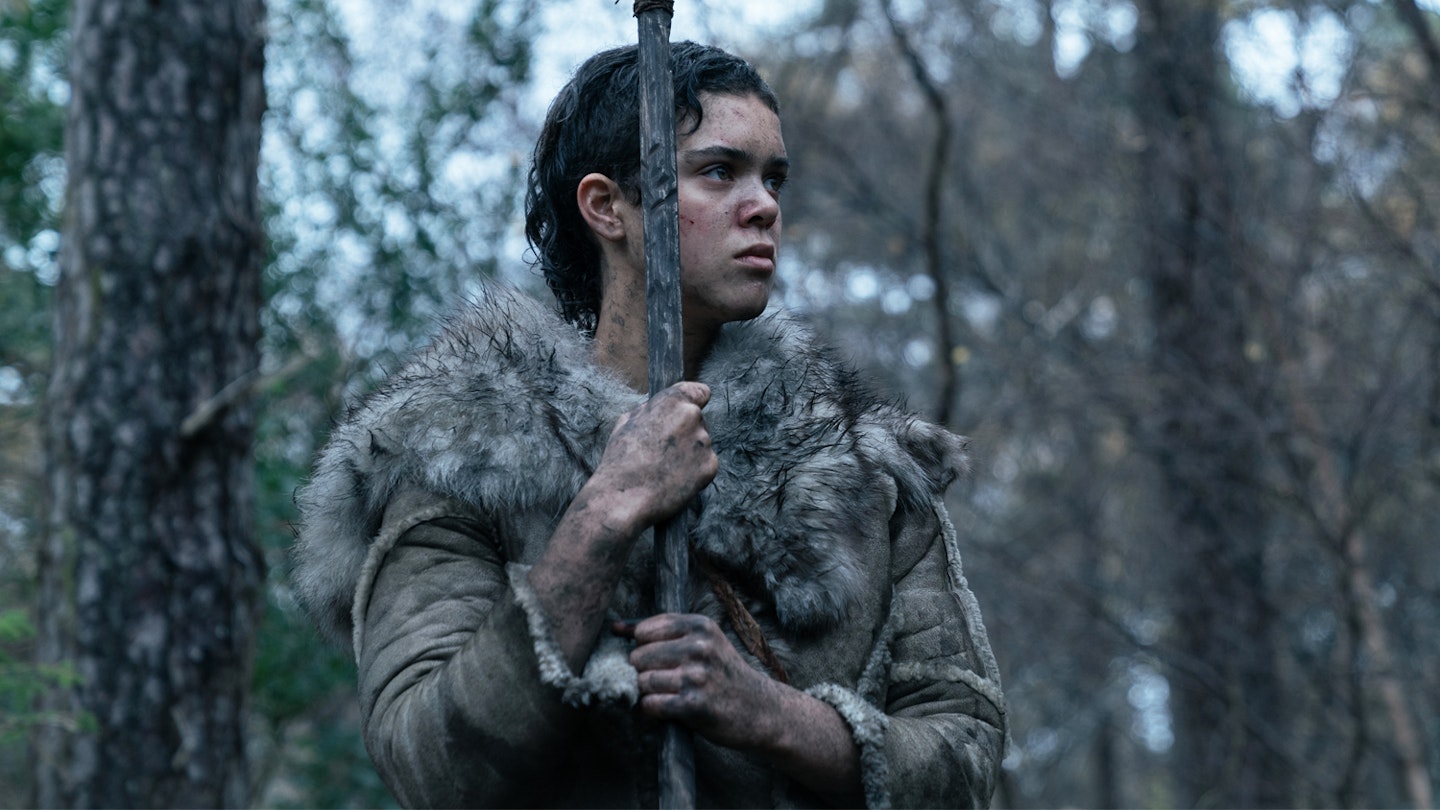Early in Out Of Darkness, spooky wise man Odal (Arno Lüning) warns: “The danger in bringing light to a dark place, is that you might find out what lives in the darkness.” It’s a mission statement for what makes this film effective, as the small tribe depicted here discover that their biggest enemy is nature, and shadows. Filmed in the Scottish Highlands during the pandemic, the film sees rolling hills become assault courses for the group, while small patches of firelight are their only refuge at night.

Narratively, the survival-horror checklist is slowly ticked, as characters make their case to be the next one on the chopping block. There’s plenty of blood, but it’s all about what isn’t seen; excellent sound design leaves you to fill in the gaps between squelches. Rather than jump scares, debut director Andrew Cumming sustains a consistent sense of threat, fraying your nerves throughout the film’s short runtime.
Has echoes of Prey, with more dirt under its fingernails.
This is more than hack-and-slash, however, as modern quandaries are sprinkled into the plot. Safia Oakley-Green becomes the centre of the film as Beyah, a “stray” adopted into the group, who questions the established order as she rails against Adem’s (Chuku Modu) plans for her. The plot’s patriarchal undertones, as well as Oakley-Green’s determination, has echoes of 2022’s Prey, with more dirt under its fingernails.
The cast all have their moments, emotion pulsing throughout, despite performing in a fictional stone-age language. Modu’s Adem has the presence of a leader, while slowly revealing a sinister side. Lüning plays the kind of over-the-top character you need in this sort of film, while Kit Young feels like a ticking bomb as Geirr, Adem’s younger brother, torn between loyalty and survival.
Whereas many horror-thrillers end with the final face-off, Out Of Darkness opts for a more insightful conclusion about the nature of the unknown. It’s refreshing, leaving you with more to think about than just gory kill scenes.
